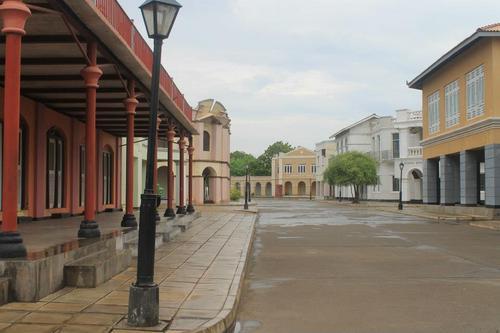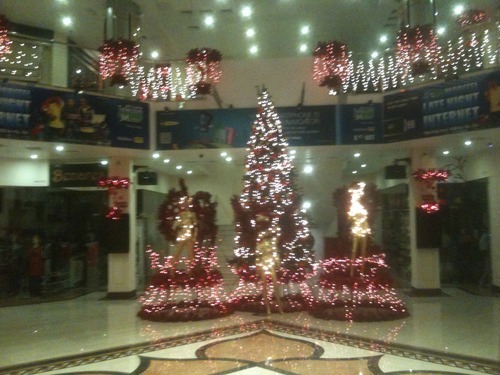Background: One of our managing director’s friends is coming to visit Sri Lanka. He’s dumping a load of much needed money for B—-s, which will help pay for a new boat (and also which will be paid into our managing director’s personal account). We had been going back and forth arranging a hotel for whale watching in the south, at Weligama for weeks.
Saturday, Feb 16, our managing director’s friend emails us, says one of his friends (hereafter referred to as “client”) is traveling to Sri Lanka, and “Can we come up with an inexpensive plan for him from for Feb 22 – 27? Ideally he could do 2 days at B—-s and some other cultural stuff that isn’t too costly.” our managing director says yes we can.
Our Sales and Marketing manager and I go about making an itinerary. Finally, on Monday we reach an agreement with our managing director’s friend. I send the invoices out. Yesterday (Thursday) our managing director’s friend’s payment has still not arrived. Without payment, I can’t make travel arrangements. I email our managing director’s friend a reminder—he pays it promptly. I rush to make arrangements. With our Sales and Marketing manager’s incredibly helpful contacts (Thanks!), we get a hotel (G—-a) booked, a driver, and time at B—-s. We call the driver, I—-a to come in to the office later that day. our managing director gives him a briefing and they sign an agreement that the driver will take the client from Feb 22-27, and will have everything paid for except meals.
6:50am. I—-a calls me to say he cannot find our client at the airport.
7:02am. I—-a calls me again, says he found our client. Starts driving the five hours to Dambulla to see ancient cave sculptures.
I feel sick. Bike to work, no breakfast.
11am I—-a calls me asks for G—-a Hotel’s contact info.
I—-a calls again, tells me that G—-a hotel had made our booking for next month, and has no rooms.
I call G—-a in a panic, explaining that our client is coming in an hour. I email booking made clearly for this month. Ask, what can we do?.
Hotel rep says if we make payment immediately, we might be able to get a room.
I call our managing director.
He says we can make visa payment immediately.
I call G—-a.
They say they cannot accept credit cards. Cash only, and they can only accommodate our client for 1 night, not 3.
I call I—-a. Ask if he knows any other hotels.
He suggests K—-a Hotel, says a friend runs it.
Fourth time on toilet today. Food poisoning? Queasy and nauseous.
I talk to our managing director, saying we have an alternate hotel. What to do?
our managing director says go for it.
I call I—-a. Ask for contact details of hotel / bank details.
He gives me his details, saying we can pay him—it’s easier.
I ask our managing director if this is ok.
our managing director says get hotel’s bank details instead.
I call I—-a. Ask again for hotel’s contact details.
I—-a gives me contact details
I call K—-a hotel. Get bank details. Price drops by $20 per night from previous quote.
I call G—-a hotel. No answer. Write them an email saying we’ve cancelled.
I create a “payment voucher” for K—-a hotel for three nights.
Everything seems sorted!
I—-a calls me. Tells me that the client does not want to do our itinerary. Has seen “too many Buddhas.”
I put I—-a on the phone with our managing director, let them figure things out. 2:00pm Haven’t eaten anything yet today. No breakfast. Go to kade to get a parotha.
Feel sick after parotha. Come back. our managing director is on phone with client. We (mostly him) rush to make a new plan. Client is to spend 1 night at K—-a hotel, then go to B—-s Camp.
Our managing director changes his mind, wants to know if I—-a is ok with taking client on a safari tonight. I point out that the Safari is likely to be more expensive, we will need to ask our driver to pay the cost for our client, who says he has no money—not good business practice to ask a driver to front money.
I call I—-a, ask if it is ok.
I—-a says ok. We can pay him at trip’s conclusion.
Now the plan is the client will go to Safari tonight, spend one night at K—-a Hotel, then drive tomorrow to B—-s and stay 4 nights.
I ask our accountant if she made payment to K—-a hotel for 3 nights, as per the prior invoice. Thank god she hasn’t! I amend invoice for our accountant for K—-a Hotel, 1 night only now. Everything seems sorted!
Our managing director asks if we can ask our driver if he is ok finishing his job tomorrow after dropping our client at B—-s. We have already made a contract saying his employment is for another five days—so I’m not sure how ethical this is.
I call I—-a if this is ok. Thank god, again, he says this is ok. He will quote a new price tomorrow.
Left unresolved:
-
What will happen to I—-a’s payment?
-
Without a driver, how will our client make it to Whale Watching after our B—-s camp? our managing director left this one vague, saying he could meet our client halfway in Colombo and drive the rest of the way. I leave unsaid that this means our client will have to take a bus to Colombo. (Oh heavens no!). Figure our managing director has it covered.
End. Now I have to write an article for a magazine. My last day before vacation to India!

